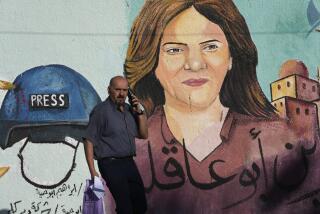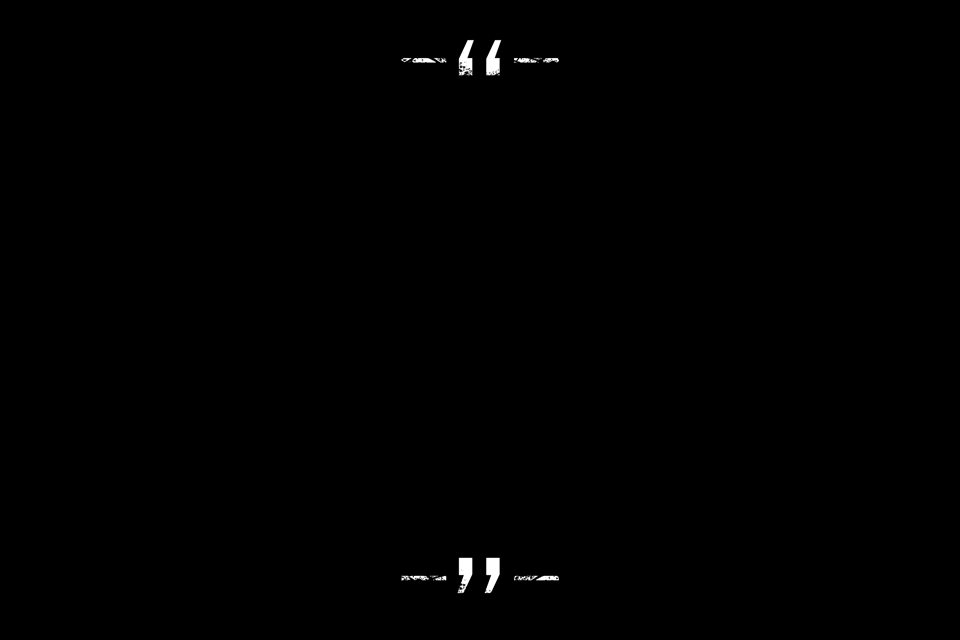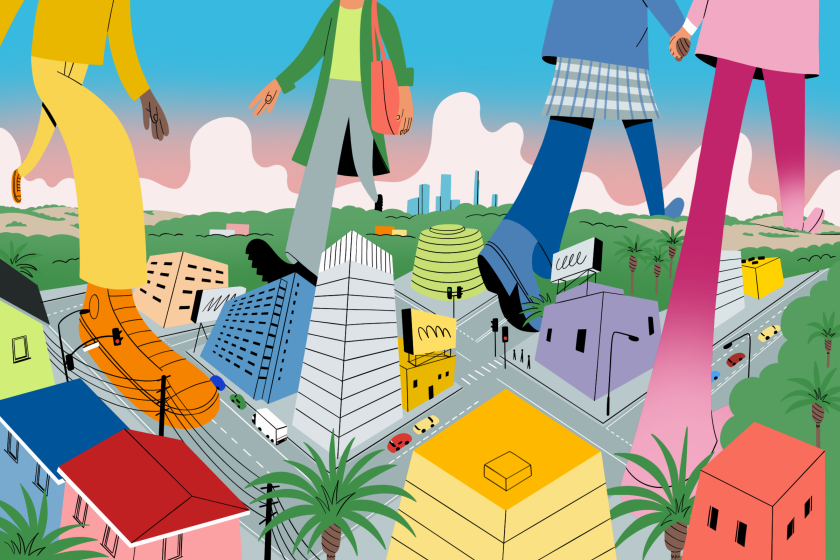Like to Cover War From Baghdad? A Survivor’s Guide for Journalists
AMMAN, Jordan — So you want to go to Baghdad to cover the war. Well, you’ll need provisions, safari-size.
Baghdad demands more than a couple of clean shirts and a new tube of toothpaste. You’ve got to think big.
Ask Alan Little, a British Broadcasting Corp. radio correspondent who has just returned from 10 days in the Iraqi capital. He was passing practical advice to other reporters this week.
“Don’t stint,” he said.
Take, for instance, transportation.
“You’ll want to take two vehicles,” Little advised, one for you and one to carry extra gasoline, which has almost disappeared in Baghdad. For obvious reasons under an air war, you do not want to ride in the truck hauling the gasoline.
Four-wheel trucks are recommended because the highway from the Jordan border to Baghdad has been cratered by allied bombing, and drivers have to slip off into the desert to get around the bad spots. In Amman, a four-wheeler rents for about $1,000 a day for the Baghdad run, plus a refundable deposit of about $33,000 if you return it in one piece. Use a professional driver.
The first requirement of the trip, of course, is an Iraqi visa. So far no one has left home without it.
Since the war started just over a month ago, several dozen Western and Asian journalists and television crew members have reached the beleaguered Iraqi capital, about 480 miles northeast of Amman, the jump-off point. The major American TV networks are there, and the international news agencies, but there have been no visas for U.S. newspapers or newsmagazines.
The writing press--some European newspaper and magazine reporters have gone in--travels lighter than the radio and TV teams with their communications equipment, but Little’s advice is generally applicable to all.
First, you go to the Amman branch of the Safeway market.
“There’s not much food left in Baghdad,” the British correspondent said. “The hotel (Rashid, where journalists are housed) is still serving meals, but it’s real thin. For breakfast, you can get two fried eggs but they’re cold when you get them. And that’s the only good meal of the day.”
At Safeway, Little advised, “load up on tinned food, powdered soup, pasta, anything that can be heated up with a little water. You’ll need to take a primus stove for cooking, and the fuel for the stove. And you want some chocolate and nuts, stuff that’s easy to grab and eat if you haven’t much time. Take cheese.”
Water?
“You can’t take enough,” Little instructed. “Once you’ve packed everything else in your vehicle, just keep sticking bottled water in every available space.”
Journalists who left for Baghdad late last week were taking about 60 1 1/2-liter bottles of mineral water for a one-week stay.
Water management is important in the Rashid. The tap works for about an hour a day, usually at 5 p.m., said Little. You want to be there to fill your bathtub. If you’re out on a story, you’ll have to borrow from someone else’s bathtub. For that you’ll need a pail. Buy two plastic pails at the Safeway, Little reminded, they’re essential. The toilet won’t flush unless you toss a pailful of your water into it.
The nights are spooky in Baghdad, returning correspondents say. In the darkness of their rooms on the fifth and sixth floors of the Rashid, air raids over the capital come with the sudden, shocking crack of bombs and missiles. You’re jerked into consciousness in a pitch-black room.
Prudent provisioning requires at least four flashlights, the BBC man suggested. If you decide to trot down six flights of stairs to reach the Rashid’s basement bomb shelter--the elevators went dead with the loss of power in the first days of the war--you will need a good flashlight.
The recommended medical/sanitation kit is normal: disinfectant, aspirin, medical dressings. Some returning correspondents suggest another potion: liquor. But others recommend that Baghdad is best taken with a clear head.
For the writing press, assignment in Baghdad means a reversal of technology. The popular $3,000-and-up laptop computers favored in the trade are of little use in a city with no power; their battery packs have to be recharged off electrical mains. The less expensive laptops that run on flashlight batteries work fine, if you have enough batteries--and the light to see your screen.
A number of reporters, faced with these difficulties, have taken a step that reflects the reversal of progress under the Baghdad bombing. They’re buying typewriters.
More to Read
Sign up for The Wild
We’ll help you find the best places to hike, bike and run, as well as the perfect silent spots for meditation and yoga.
You may occasionally receive promotional content from the Los Angeles Times.






